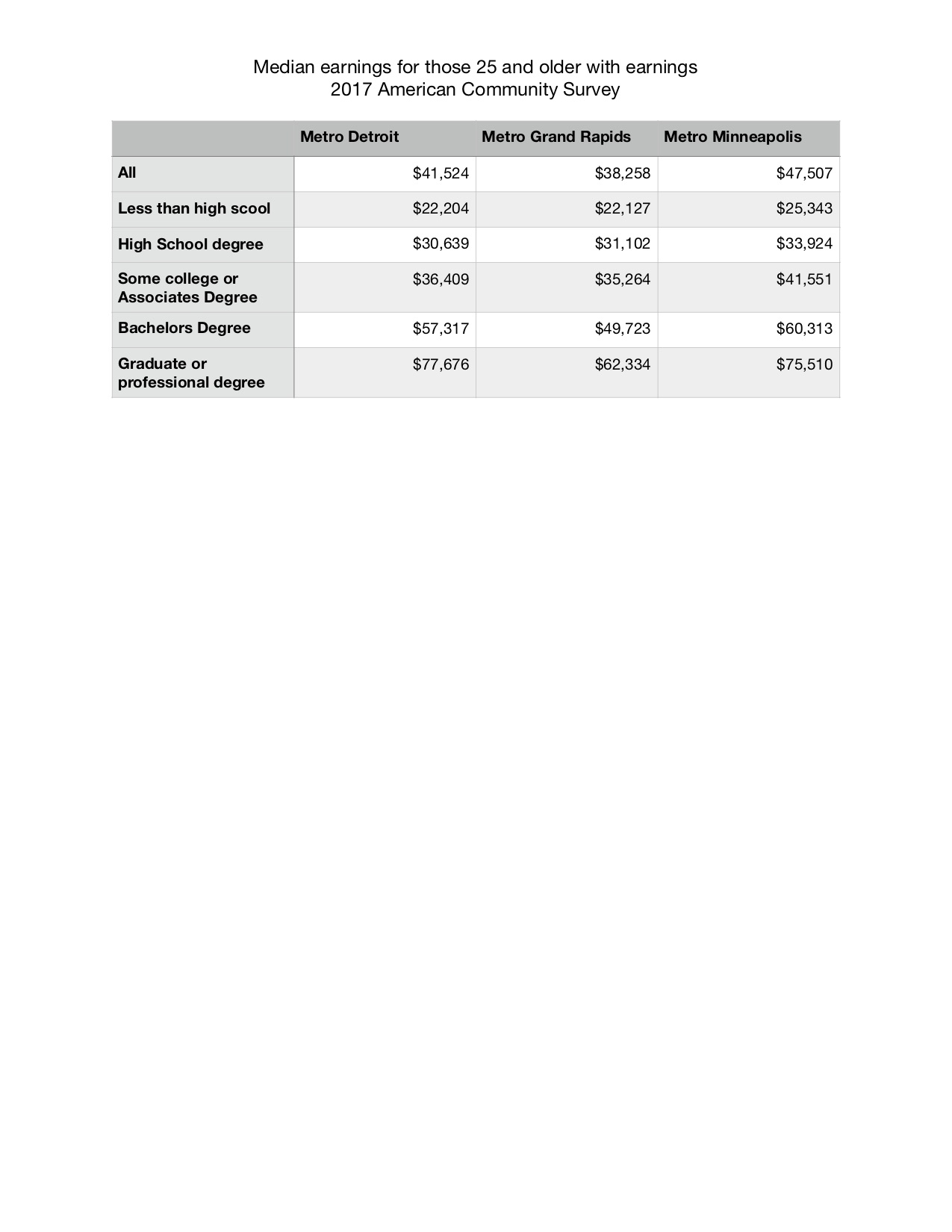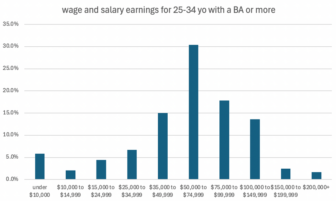In our last post we explored 2017 American Community Survey data on median earnings from work of those 25 and older who worked for the nation, Michigan, and ![]()
Minnesota. Earnings included in the data are wages and salaries from a job plus net self-employment income. In this post we look at that same data for the Detroit, Grand Rapids and Minneapolis regions. Minneapolis being the most prosperous big metro in the Great Lakes.
As with the national and state data, the table makes clear that the typical worker earns more from work as education attainment increases. No exceptions to the pattern: the higher the education attainment, the higher the earnings from work. The table shows this was the case in 2017 for workers in each of the three regions. It provides up to date data on the reality that workers with a four-year degree or more earn the most. Despite way too many business and political leaders telling us the opposite.
It is worth noting that, although there are big premiums in moving up the education ladder at every rung on the ladder, the biggest premiums, by far, are from earning a Bachelors Degree compared to some college or Associates Degree and for earning a graduate or professional degree compared to a Bachelors Degree. In Metro Detroit, as an example, the median is about $19,000 higher for those with a Bachelors Degree compared to some college or Associates Degree and the median is about $20,000 higher for those with a graduate or professional degree compared to a Bachelors Degree. The median earnings from work is more than double for those with a graduate or professional degree compared to those with some college or Associates Degree.
The table also provides more evidence that metro Detroit and Grand Rapids, even in a strong economy with a low unemployment rate and a strong domestic auto industry, lag substantially metro Minneapolis. The main reason is that more 25 and older in metro Minneapolis have a four-year degree or more which is where high-earnings jobs are concentrated. 41.1 percent of those 25 and older in metro Minneapolis have a Bachelors Degree or more compared to 33.7 percent in metro Grand Rapids and 31.1 percent in metro Detroit.
The data also show that, with one exception, at every education attainment level metro Minneapolis has a higher median earnings from work than both metro Detroit and metro Grand Rapids. The exception is that metro Detroiters with a graduate or professional degree have higher median earnings from work than their metro Minneapolis peers.
Even though metro Grand Rapids is more college educated than metro Detroit, its median earning from work overall and, with one exception, at every education attainment level is lower than metro Detroit. The one exception being for those with a high school degree. The difference between the two metros is small until you get to those with a four-year degree or more. Where it grows to more than $7,000 for those with a Bachelors Degree and to more than $14,000 for those with a graduate or professional degree. It seems that this is part of a national pattern where those with a four-year degree or more earn substantially more in the biggest metros across the country.








